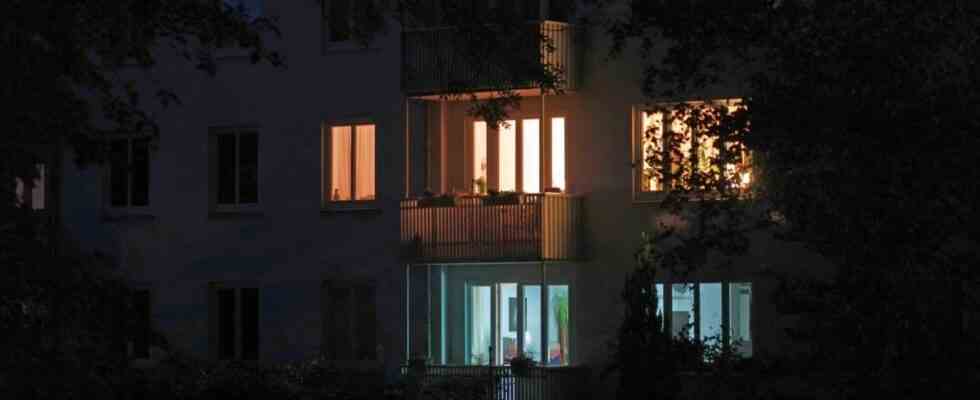The SPD, Greens and FDP will meet on Tuesday and Wednesday at Meseberg Castle for a cabinet retreat, and there is a lot to discuss. It was said that final decisions on a third relief package, on citizen income or on compensating for cold progression were not to be expected. But even with the coalition’s internal climate care, the three partners are likely to be well occupied. Because the energy crisis is putting the traffic light coalition under increasing pressure to act.
In addition to rapidly increasing gas prices, electricity prices are now also threatening to overwhelm the economy and private households financially. “The current electricity prices show that we have a massive problem,” said the parliamentary group leader of the FDP in the Bundestag, Christian Dürr, the SZ. The supply of reliable electricity has become extremely scarce in the past ten years.
So far, gas-fired power plants have usually set the price on the electricity market: if the gas price rises, the electricity costs follow
Lower Saxony’s Prime Minister Stephan Weil (SPD) also described the development as worrying and brought up far-reaching market interventions: In his view, “a suspension of electricity trading and temporary state price regulation could also be considered” if the electricity market could not be reformed in the short term due to Europe-wide interdependencies . “Everything speaks in favor of rapid and consistent government intervention,” explained Weil.
The background: Until now, gas-fired power plants have usually set the price on the electricity market. If the price of gas rises, the cost of electricity will also increase. “The rules of the electricity exchange do not fit the current situation,” said Weil, referring to “huge speculative profits”. Other electricity providers, such as the producers of renewable energies, also benefited from the situation. “Without additional effort on your part, their profits increase massively.” Federal Finance Minister Christian Lindner (FDP) has already discussed the connection between gas and electricity prices and has spoken of a “profit autopilot” on the electricity market. “Profits are increasing billion by billion at the expense of consumers,” he said picture on sunday.
The responsible Federal Minister of Economics Robert Habeck (Greens), however, curbs expectations. He also wants to dampen prices for consumers and industry with a fundamental reform of the electricity market. According to a spokeswoman, this is a “medium-term project”.
The rise in electricity prices is also exacerbating the coalition’s internal dispute over the continued operation of the remaining nuclear power plants. In the next few days, the result of the second stress test should be available, with which the power grid stability is checked under tighter assumptions – and what contribution the nuclear power plants could make to it.
It would be important “to get to the home stretch now,” Dürr said on Sunday. “We have to ensure the security of supply with electricity in a timely manner and ensure that this succeeds as far as possible without gas.” Gas can be replaced in electricity production. In addition, a term extension would reduce the price pressure “by 16 billion euros”. “In the current emergency situation, we have to act pragmatically so that together we can get through the winter as well as possible,” said Dürr.
Foreign Minister Annalena Baerbock (Greens) opposed this at the weekend. She is not convinced that nuclear power plants will solve the gas problem, she said picture on sunday.
SPD parliamentary group leader Dirk Wiese: “The Habeck principle works like this: appearances ready for film, technical implementation questionable”
The electricity debate is the next construction site for the Green Economics Minister Habeck, who is already under pressure because of the gas levy. From October onwards, all gas customers are to pay 2.4 cents per kilowatt hour to support gas importers in need. However, it is now apparent that companies that are in a good financial position, for example because they belong to a profitable parent company, are also entitled to income from the gas surcharge. Habeck had recently conceded this point. Because they didn’t know “how this gas market is intertwined,” which companies “have any shares in subsidiaries and so on,” a problem arose, he said last week.
Habeck’s crisis management is increasingly being criticized in the coalition. SPD faction vice Dirk Wiese said picture on sunday: “The Habeck principle goes like this: performances ready for film, technical implementation questionable and in the end the citizen pays for it.” SPD leader Lars Klingbeil also attested to Habeck’s undoubtedly “interesting style of communication”. But in the end, it’s not just nice words that count in politics, above all the substance has to be right, he said time. “That’s why it’s now important, for example, that we work together to eliminate the technical errors that happened with the gas levy.” Lindner was also open to corrections.
The dispute over electricity prices and the gas levy is thus also taking on a party-political dimension: So far, the Greens have benefited the most in the traffic light coalition, at least based on the polls. Habeck also clearly leads the ranking of the most popular politicians. If the Greens came under more pressure for the first time with him, that would be a new constellation within the alliance. As much as it is emphasized to the outside world that one must stand together in these times of crisis, after this weekend it cannot be said that the Social Democrats and Liberals made any particular effort to take the pressure off the Green coalition partner.

